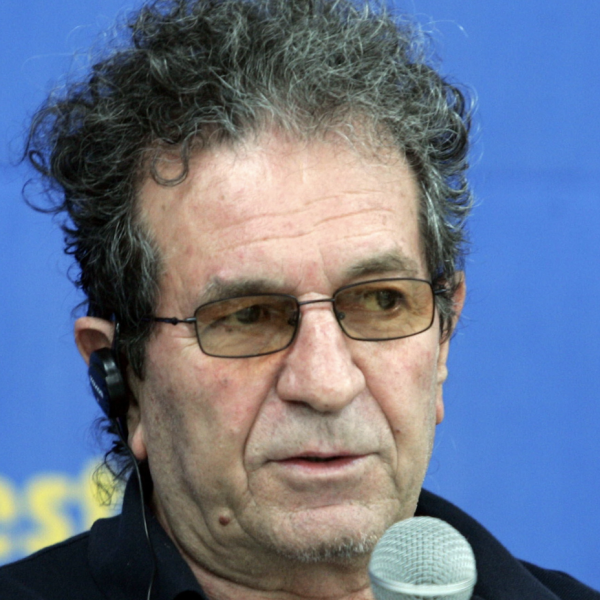The middle part of a trilogy consisting of 2023’s “Youth (Spring)” and the imminent “Youth (Homecoming),” “Youth (Hard Times)” crystallizes the strengths of Wang Bing’s latest epic-length documentary project. “Hard Times” offers no radical change from the (quite deliberately) repetitive construction of “Spring,” but does feature subtle shifts in focus and certainly a lot more in the way of incident and splintering effects. That’s not to say that there’s now a lack of sequences devoted to people humming along to music playing on their phones while they work — the year’s most surprising needle drop may be that an austere arthouse documentary features an electronic track that seemingly samples The Offspring’s “Original Prankster.”
A primer, first, for anyone who’s not already familiar with the project. Slowness and making viewers aware of deceptively aimless pacing are perhaps the definitive characteristics of Wang’s output. He embeds himself in the lives of his subjects, sometimes across several years, roaming a community’s space with his camera in order to cinematically convey the rhythms of a given way of life. His documentaries are purely observational works that end up speaking on some of the most difficult truths about China’s past and present.
With the “Youth” cycle, which was shot between 2014 and 2019, Wang and several other camera-handling collaborators entered the world of textile workshops in Zhili, a town in the Wuxing District of Huzhou. Zhili is one of the country’s primary locations for privately-run sweatshops, with most of the cramped offices and dormitories glimpsed in the film being located on Happiness Road. That name is one ironic gag; another punchline comes every time that onscreen text demarcates each space, only for there to be a near total absence of perceptible difference between the sites.
Nearly all of the employees are economic migrants from the nearby Anhui province. They work in brutal conditions and are restricted by the strain and requirements of constant, monotonous labor in order to provide the bare minimum of basics to get by. And yet, the largely young workforce — most that we meet are teenagers and twentysomethings — do manage to establish social lives and moments of spontaneous connection during 15-hour shifts spent stitching clothes and running machines whose humming noises compete for soundtrack space with pop music blaring from phones.
In contrast to both films’ slow paces, the workers must ensure they can stitch as fast as possible in order to command higher paychecks from their tallies (they are paid paltry rates per completed item). Kids mess around, flirt, argue, philosophize and fight with their various co-workers and crushes. While the names, ages and hometowns for many of the workers appear onscreen, Wang tracks them as a collective rather than anyone being explicit protagonists, though a few individuals certainly get a little more attention as he freely jumps back and forth between shops — some of them return for the sequel, and presumably will again in the threequel.
In “Spring,” Wang was a tad more focused on the social aspect of these environments, although the first instances of bargaining for better wages from bosses eventually happened roughly 90 minutes into that three-and-a-half hour film. In the 227-minute “Hard Times,” which is mostly set in 2015 in the run-up to New Year, the material conditions that sustain the workshop world take center stage. Unlike the name of Happiness Road, “Hard Times” is definitely not an ironic title.
There are more fights for better pay from the start. One young man gets into a physical altercation with management after losing the notebook that logs his tallies and days worked, with the boss not retaining backup copies for any of his employees and also not accepting the lad’s phone photos of his records — the teenager will not be paid what the boss even admits he’s owed unless he can find and hand over the paybook.
Children start appearing in sweatshops because both parents are working there and have no means of childcare support. One group of workers watches from high up a concrete complex as their indebted boss and his family beat up a supplier on the street below. Some shops abruptly close when the owners flee town with both money and records, setting the stage for financial and housing crises, with the landlord who oversees the dilapidated dormitories doing nothing to help those screwed over by the management running away and robbing the workers of the fruits of their labor. Not that they weren’t already being robbed.
Loss of dignity becomes a recurring theme among the stories of “Hard Times,” though some individuals do at least claw back a degree of control over how their struggles are documented. On a few rare occasions, what’s left of a line separating Wang (plus his fellow camera operators) and the workers is broken. There are some very brief spoken exchanges between the observed and the observer, with a guffaw-worthy moment coming from one person in a lively group meeting turning around, clocking that the camera is present and saying, “Fuck, don’t film this!”
Whether it was Wang himself behind the handheld camera in this particular instance (or one of his five other credited camerapeople), the inclusion of one specific fourth-wall break plays like the director poking fun at himself and any criticisms of his trademark wandering approach. Slowly following one older gentleman up concrete stairs outside at night (“Hard Times” features quite a few more fortysomethings working at the shops), the camera is made to pause as the subject turns around and says, “You should be filming the workshop. They’re not working right now… trying to make a deal with the boss.”
That group discussion back downstairs has, in fact, been captured by another camera, but this interaction provides a welcome bit of levity amid the gloomy proceedings. With the purely observational barrier slipping in moments like these, one wonders if and how “Homecoming” — the final (and shortest!) part of Wang’s rich, captivating series — will ever so slightly tweak the formula further.
Grade: B+
“Youth (Hard Times)” premiered at the 2024 Locarno Film Festival. Icarus Films will distribute the film in North America.
Want to stay up to date on IndieWire’s film reviews and critical thoughts? Subscribe here to our newly launched newsletter, In Review by David Ehrlich, in which our Chief Film Critic and Head Reviews Editor rounds up the best reviews, streaming picks, and offers some new musings, all only available to subscribers.



